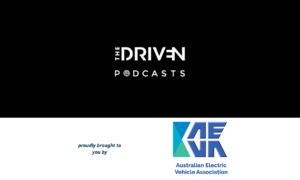Today I had the pleasure of visiting PowerHouse – a solar incubator in Oakland California co-founded by (Australian) Danny Kennedy of Sungevity fame. Whilst there I had the additional pleasure of sampling a bottle of UtilityIPA, a delicious beer made by the founders of emerging clean-tech start-up UtilityAPI.
The beer and its play-on-word branding (no doubt formulated over a beer itself) was delicious – summery, not too hoppy and very Californian in personality!

But even more delicious is their software.
What is UtilityAPI?
UtilityAPI have developed software interface which connects with a utility’s customer data systems to immediately download their consumption and interval billing data.
Imagine pressing a button and accessing customer billing data immediately (with their electronic permission). In the future the company hopes to able to access customer default rates to provide immediate credit checking as part of the same process.
This is of enormous value to solar developers as well as those working in energy efficiency and demand side response, as well as utilities.
Check out this two minute demo of what it can do!
Expect to see many more similar innovations become commonplace over the next 10-20 years in the drive to reduce the soft cost of solar towards zero.
The problem in UtilityAPI’s sights…
Energy efficiency and solar providers operating in the commercial and industrial sector deal with slow customer conversion times. In Australia, this can equate to an average lead time of 6 months (according to SolarWiz’s Warwick Johnston). The delays come from a number of factors, one of which is timely access to accurate meter data.
From my experiences in Australia it can take up to 4 weeks to manually access interval meter data via an email request sent to the utility. Sometimes solar and energy efficiency companies will resort to physically installing data loggers on site in order to quickly access energy use data. Both these clunky and dated methods prevent on-the-spot quotations with most commercial clients, substantially slowing the sales process and losing crucial momentum.

What’s in it for a solar developer or energy efficiency company?
Imagine being able to offer your customer an immediate proposal on your iPad whilst conducting your initial site tour! Imagine the momentum that would provide in the sales process, saving time, hassle and increasing project deal flow. Imagine the hassle avoided by not having to wait for the customer bills to be scanned and sent through, and then having to manually calculate energy consumption and tariffs.
The UtilityAPI pricing ranges from US$10-$15 per meter, which at the US average residential solar conversion rates (approximately 5% according to UtilityAPI) could equate to US$200 per conversion. From my Australian commercial solar market experience, conversion rates are higher, resulting in a much lower cost per conversion. The value preposition lies in much shorter lead times, more accurate proposals, better deal flow and therefore more projects!
What’s in it for the utility?
The utilities see value in partnering with UtilityAPI as it allows them to reduce labour time associated with manually responding to data requests. It also indirectly lowers the costs of energy efficiency and renewable energy solutions, allowing the utility to reach any renewable or efficiency mandates at lower cost.
Will this come to Australian market in the near term?
Naturally, UtilityAPI is targeting the US market in the short to medium term with international expansion planned later in the decade. However, according to Wes Brown, Director of Business Development, they’d be open to partnerships with Australian companies who are serious about bring the software down-under via franchising or similar methods.
“If an empowered company or self-starter came to us, with some history in the sector and track record of delivery, we’d be open to considering some sort of partnership in Australia”.
This is just one story in a series written by Cooper from his travels. Please click on the Citizens Power tag line to read more.








